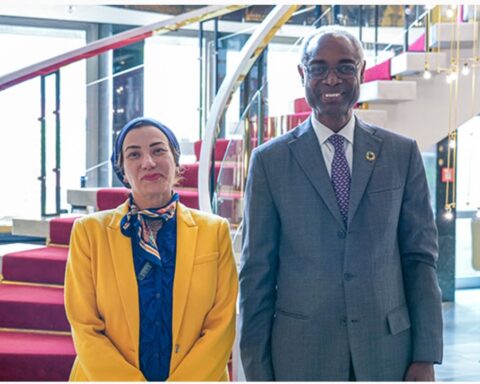Hundreds of private sector leaders from industries including finance, agriculture, fashion, and pharmaceuticals gathered in Riyadh, Saudi Arabia, to discuss their pivotal role in promoting sustainable land, soil, and water management.
The event was organized by the United Nations Convention to Combat Desertification (UNCCD) during the ongoing 16th Conference of the Parties (COP16).
The Business 4 Land (B4L) Forum, a key feature of the ongoing COP16, brought together high-level decision-makers and corporate executives from over 40 companies.
Industries represented included agrifood, textiles, energy, information technology, and finance, with participants deliberating on strategies to combat land degradation and mitigate drought risks.
Speaking at the forum, Ibrahim Thiaw, the Executive Secretary of UNCCD, emphasized the importance of private sector involvement in sustainable land management.
“Shifting towards nature-positive operations, supply chains, and investments is not just about environmental sustainability but also about long-term profitability and resilience for businesses,” Thiaw said.
He described COP16 as a turning point, marking the largest-ever private sector participation in a UNCCD conference.
Launched earlier this year at the World Economic Forum in Davos, the B4L initiative aims to mobilize private actors for sustainable land management.
It is supported by diverse stakeholders, including the Saudi Environment Fund, the World Business Council for Sustainable Development, and the International Chamber of Commerce.
Participants were urged to contribute to B4L’s three pillars: sustainable business practices, financing solutions, and advocacy for improved land and water management policies.
André Hoffmann, Vice-Chairman of the Board of Directors and founder of InTent, called for a shift from exploitative practices to collaborative efforts.
“The private sector must see nature not as a resource to exploit but as our life-support system,” he said.
New Guidance for Corporate Actors
A key outcome of the forum was the launch of the ‘Corporate Disclosures and Target-Setting on Land Guide’.
Developed in partnership with the Taskforce for Nature-related Financial Disclosures (TNFD) and the Science Based Targets Network (SBTN), the guide provides a framework for businesses to measure and mitigate their impacts on land.
Razan Al Mubarak, Co-Chair of TNFD, highlighted the importance of corporate accountability in addressing land degradation.
“Many companies lack a clear understanding of their land-related impacts, leaving them vulnerable to significant risks,” she said.
African Implications and Opportunities
For African businesses, the forum’s outcomes hold particular relevance. With vast agricultural landscapes and significant dependence on natural resources, African economies stand to benefit from sustainable land management practices.
Experts noted that the continent’s exposure to land degradation and drought underscores the urgent need for private sector innovation in land restoration.
Nicole Schwab of the World Economic Forum noted that businesses across industries must act decisively to reverse trends of degradation, water scarcity, and biodiversity loss, aligning efforts with global sustainability goals.
The forum concluded with a call for deeper collaboration between governments, businesses, and civil society to protect land as a critical asset for human and economic resilience.
By Dare Akogun








